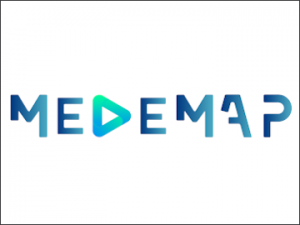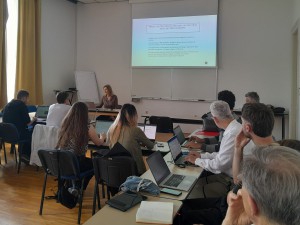Attention economy
19. 6. 2024 | Media

Co-organized by the Maska Institute and the Center for Social Communication Research at the Faculty of Social Sciences, University of Ljubljana a discussion on the topic of the attention economy took place on May 16th, featuring Peter Sekloča from the Afemed research group. Together with Sašo Slaček Brlek, he explored how Slovenian newspapers are adapting to the digital age. Print media are much more exposed to changes related to digitalization than radio and television, as they are unable to compensate for decreased revenues due to declining print circulation with digital subscriptions or advertising. Advertising revenues that once filled the pages of print news are now flowing into digital channels, where digital platforms, primarily Facebook and Google, dominate. This means less money for newspapers, which must find new ways to survive in the market. The newspaper industry has responded with cuts and savings, which also results in lower-paid and more precarious jobs for journalists, along with increased workloads. To compensate for the revenue decline, newspaper companies are deepening cooperation with advertisers, increasingly tailoring content to their interests, and seeking ways to generate additional revenue outside the media market.




